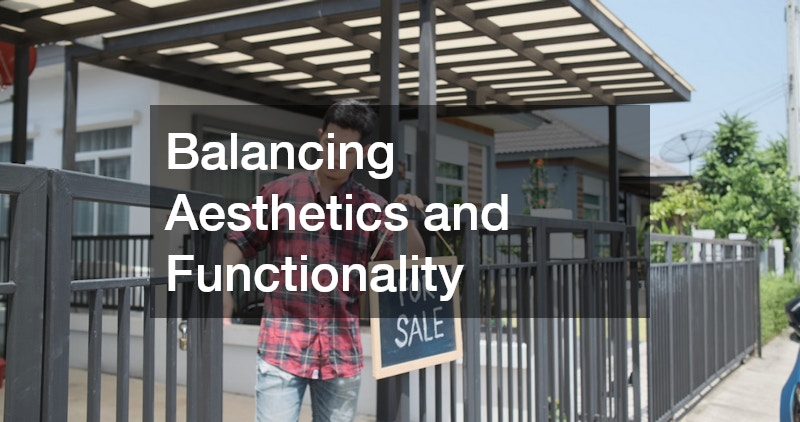Custom business signs play a critical role in distinguishing businesses in a crowded market. These signs are not just about displaying a name or logo; they are strategic tools that enhance brand recognition and create memorable customer experiences. One of the key benefits of custom business signs is their ability to effectively communicate a brand’s identity and attract potential customers, prompting the fundamental questions of design, strategy, and maintenance.
Enhanced Brand Recognition
Custom signs are essential in establishing and sustaining brand recognition. By injecting unique design elements and colors, a business can ensure a lasting impression on consumers. This recognition not only fosters customer loyalty but also drives word-of-mouth marketing, making your business a recognizable name in the community.
Visually appealing and thoughtfully crafted signs can elevate a brand’s image significantly. Well-crafted signage serves as a constant visual reminder of the brand, contributing to long-term brand recall. This makes custom signs an investment that pays dividends as they repeatedly capture the attention of both new and returning customers.
Improved Customer Engagement
Custom signs serve as an invitation for customers to explore what a business has to offer. Well-designed signs capture the attention of passersby and invite them to engage with the brand. By drawing customers into the premises, businesses can increase foot traffic and, subsequently, sales opportunities.
Engaging signage can also communicate a brand’s values and promises, offering a snapshot of what customers can expect. This interaction paves the way for a deeper connection between the consumer and the brand, enhancing customer satisfaction and retention. Custom signs act as a bridge, transforming external interest into internal customer engagement.
Versatility and Tailored Messaging
Custom business signs offer the flexibility to adapt messaging according to specific seasons, occasions, or target audiences. This versatility allows businesses to remain relevant and engaging, regardless of external circumstances. Tailored messaging can highlight promotions, seasonal offers, or any unique selling propositions that differentiate the business.
The ability to convey targeted messages ensures that businesses can speak directly to their audience’s needs and preferences. Versatile signage can be updated or modified to reflect brand campaigns or shifts in consumer trends. This adaptability is a crucial asset in maintaining consumer interest and relevance in a fast-paced market.
Choosing the Right Materials
Selecting suitable materials is paramount for the longevity and effectiveness of custom business signs. Environmental factors such as weather conditions and location play a significant role in determining material durability. By investing in quality materials, businesses ensure that their signage withstands the test of time and maintains its appeal.
Durable materials not only contribute to the sign’s lifespan but also to its visual effect. High-quality materials reflect a brand’s commitment to excellence and professionalism. This attention to detail enhances consumer trust and portrays a positive brand image.
Incorporating Brand Elements
Aligning signage design with a brand’s aesthetics, including logos and colors, strengthens brand recognition. Consistency in brand elements across all marketing channels, including signage, builds a cohesive brand identity. This seamless integration assures customers of the brand’s authenticity and reliability.
Incorporating brand elements into signage design makes the business immediately recognizable to its target audience. Elements such as typography, icons, and color schemes help convey a unified brand message. This visual consistency reinforces brand identity and helps establish a strong market presence.
Balancing Aesthetics and Functionality
A well-designed business sign strikes a balance between visual appeal and functional clarity. While creativity in design is important, ensuring that the sign remains easily readable from a distance is crucial. Effective signage employs optimal font sizes, contrast, and spacing to convey messages with precision.
Functional signage guides consumers effortlessly, making it easier for them to navigate or understand offers and promotions. Aesthetic elements should complement rather than overshadow the message being communicated. This balance ensures that the sign effectively serves its purpose as both an informative and marketing tool.
Overcrowding with Information
Overloading a sign with excess information can dilute the intended message, confusing and overwhelming viewers. Clarity and simplicity are key factors in effective signage communication. Prioritizing essential information ensures that the audience quickly understands the core message.
By focusing on the most important information, businesses can create impactful signage that resonates with viewers. Too much detail can distract from the main message, reducing its effectiveness. Instead, concise messaging enhances retention and understanding.
Neglecting Maintenance and Upkeep
Regular maintenance of custom business signs is vital for sustaining their visual appeal and effectiveness. Damaged or outdated signage can create a negative impression, diminishing consumer trust and interest. Regular inspections and upkeep ensure that signs remain in optimal condition.
Custom business signs are powerful tools that enhance brand recognition, improve customer engagement, and offer versatile messaging options. Designing effective signs involves careful consideration of materials, brand alignment, and the balance of aesthetics with functionality. By avoiding common pitfalls in sign design and maintenance, businesses can invest in high-quality signage that stands out from the competition. Creativity and strategic design can not only set businesses apart but also pave the way for ongoing success in the competitive market landscape.

